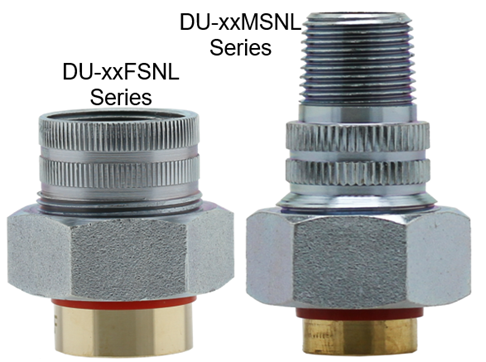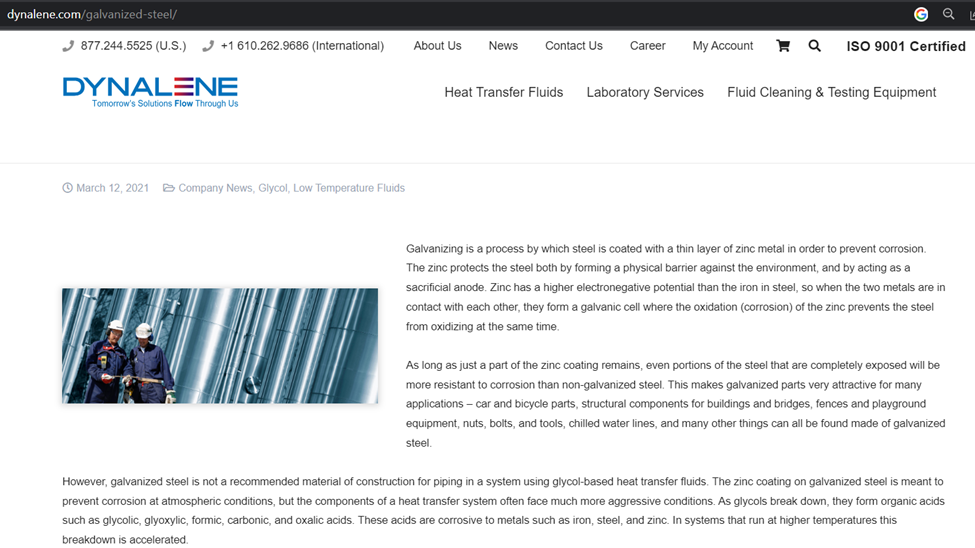Are dielectric unions suitable for glycol transfer applications?
Are dielectric unions suitable for glycol transfer applications?
 No! Glycols are corrosive to metals such as iron, steel, and zinc. Therefore, our DU series dielectric unions are not recommended for the transfer of either ethylene glycol or propylene glycol. As fluid temperature increases the rate of corrosion also increases.
No! Glycols are corrosive to metals such as iron, steel, and zinc. Therefore, our DU series dielectric unions are not recommended for the transfer of either ethylene glycol or propylene glycol. As fluid temperature increases the rate of corrosion also increases.
The link below is a good article on the subject in which DYNALENE addresses the question, “Can You Use Galvanized Steel with Glycol-based Heat Transfer Fluids?”.
https://www.dynalene.com/galvanized-steel/
From the article: "However, galvanized steel is not a recommended material of construction for piping in a system using glycol-based heat transfer fluids. The zinc coating on galvanized steel is meant to prevent corrosion at atmospheric conditions, but the components of a heat transfer system often face much more aggressive conditions. As glycols break down, they form organic acids such as glycolic, glyoxylic, formic, carbonic, and oxalic acids. These acids are corrosive to metals such as iron, steel, and zinc. In systems that run at higher temperatures this breakdown is accelerated."

